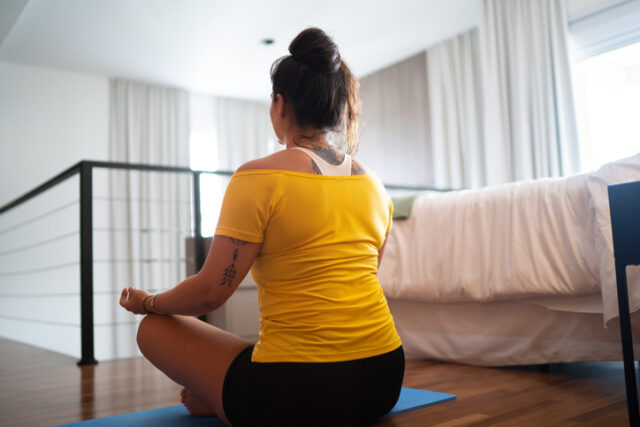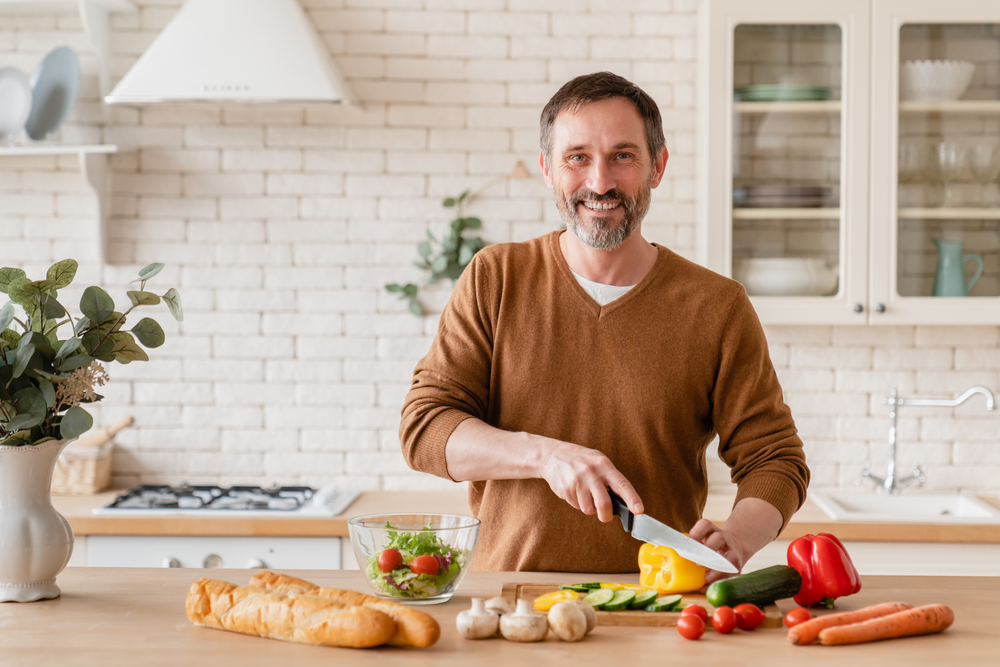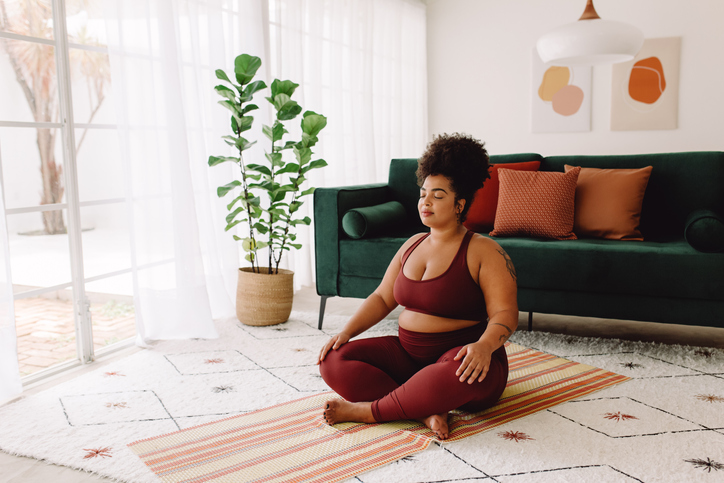In a world that feels like it’s spinning out of control, some people seem to have found the secret to inner calm. They’re the ones who remain centered when the storm hits and it’s enviable. So, what’s their secret? Let’s chat about some daily practices that help these people maintain their inner peace, even when life decides to throw a curveball (or ten).
1. They start the day with intention, not Instagram

Instead of reaching for their phones the moment they wake up, these people begin their day by setting an intention. It could be as simple as “I will approach today with kindness” or as specific as “I will remain calm during my presentation.” This practice guides their actions and reactions throughout the day. It’s basically like they’re giving their minds a roadmap before the journey begins, making it easier to navigate the twists and turns.
2. They’re not multitaskers, they’re single-taskers

Everyone touts multitasking as the way to go, but these folks know better. They focus on one task at a time, giving it their full attention. According to the Cleveland Clinic, by avoiding the mental chaos of juggling multiple tasks, they reduce stress and increase their sense of control. It’s mental decluttering—removing the unnecessary noise to create space for clarity and calm.
3. They are their own best friend

Above all, these individuals cultivate a kind and supportive relationship with themselves. They speak to themselves with compassion, celebrate their wins (no matter how small), and give themselves comfort during tough times. This self-friendship forms the foundation of their inner peace, providing a constant source of support no matter what’s happening in the outside world.
4. They move their body to move their mood

Exercise isn’t just about physical health, it’s a crucial tool for mental well-being. Whether it’s a gentle yoga session, a brisk walk, or an intense workout, they make movement a daily priority. This isn’t because they’re aiming for washboard abs, they’re looking to release tension, boost endorphins, and create a sense of accomplishment. It’s their way of showing up for themselves, no matter what else is going on in their lives.
5. They practice radical acceptance

Instead of fighting against reality, these people practice accepting things as they are. This doesn’t mean they don’t take action to change things when needed, but they don’t waste energy resisting the unchangeable. It’s about acknowledging “what is” before deciding “what next.” This acceptance reduces the internal friction that often leads to stress and anxiety.
6. They treat their body like a temple, not a trash can

These individuals are mindful of what they put into their bodies, opting for foods that fuel rather than drain them. This doesn’t mean they never have a slice of cake—balance is key. But they recognize that a diet of processed junk and excessive caffeine is about as conducive to inner peace as a jackhammer at a meditation retreat.
7. Meditation is more than a trend

Meditation isn’t something these people do when they have time—they make time for it. Whether it’s 5 minutes or 50, they consistently carve out space for stillness. This is about training the mind to return to the present moment. Think of it as taking your brain to the gym. Just as you wouldn’t expect to bench press 200 pounds without training, you can’t expect your mind to remain calm in chaos without practice.
8. Gratitude is their handy attitude adjustment tool

Every day, without fail, they find something to be grateful for. Even on the worst days, they dig deep to find a silver lining. This isn’t toxic positivity, this is about adjusting the lens through which they view the world, choosing to focus on what’s going right rather than what’s going wrong. This practice builds resilience, making it easier to bounce back when life gets tough.
9. They protect their energy

They set clear boundaries in their personal and professional lives, understanding that protecting their energy is crucial for inner peace. By recognizing their limits and honoring them, they avoid the resentment and burnout that come from overextending themselves.
10. Conscious breathing is their secret weapon for instant calm

Throughout the day, they take moments to focus on their breath, using techniques like box breathing or deep belly breaths. This practice helps them regulate their nervous system, bringing them back to a state of balance when stress threatens to take over. It’s their reset button, available anytime, anywhere.
11. They learn how to let go

Whether it’s through decluttering their physical space or releasing grudges, this type regularly practices letting go. They understand that holding onto things—be it material possessions or emotional baggage—creates unnecessary weight. This practice of release creates space for new experiences and emotional lightness.
12. They treat nature as their therapists

Making time to connect with nature is a non-negotiable part of their routine. Whether it’s a walk in the park, tending to plants, or simply sitting outside, they prioritize green time. This practice helps ground them, providing perspective and a sense of connection to something larger than themselves.
13. Journaling is their emotional outlet

According to Psych Central, regular journaling serves as a way to process emotions, gain clarity, and release mental clutter. This helps them make sense of their experiences and emotions, often leading to insights and solutions. It’s like having a daily debrief with themselves, clearing the mental decks for the next day.
14. They make meaningful connections

While they value solitude, they also prioritize nurturing relationships that feed their soul. They make time for deep conversations and shared experiences with people who uplift them. This acts as a buffer against life’s challenges, providing comfort and perspective when things get tough.
15. Mindful consumption is their norm

They’re intentional about what they consume, not just in terms of food, but also media and information. They limit exposure to negative news and social media, choosing instead to engage with content that inspires and informs. This practice helps maintain a positive mindset and reduces unnecessary stress triggers.








